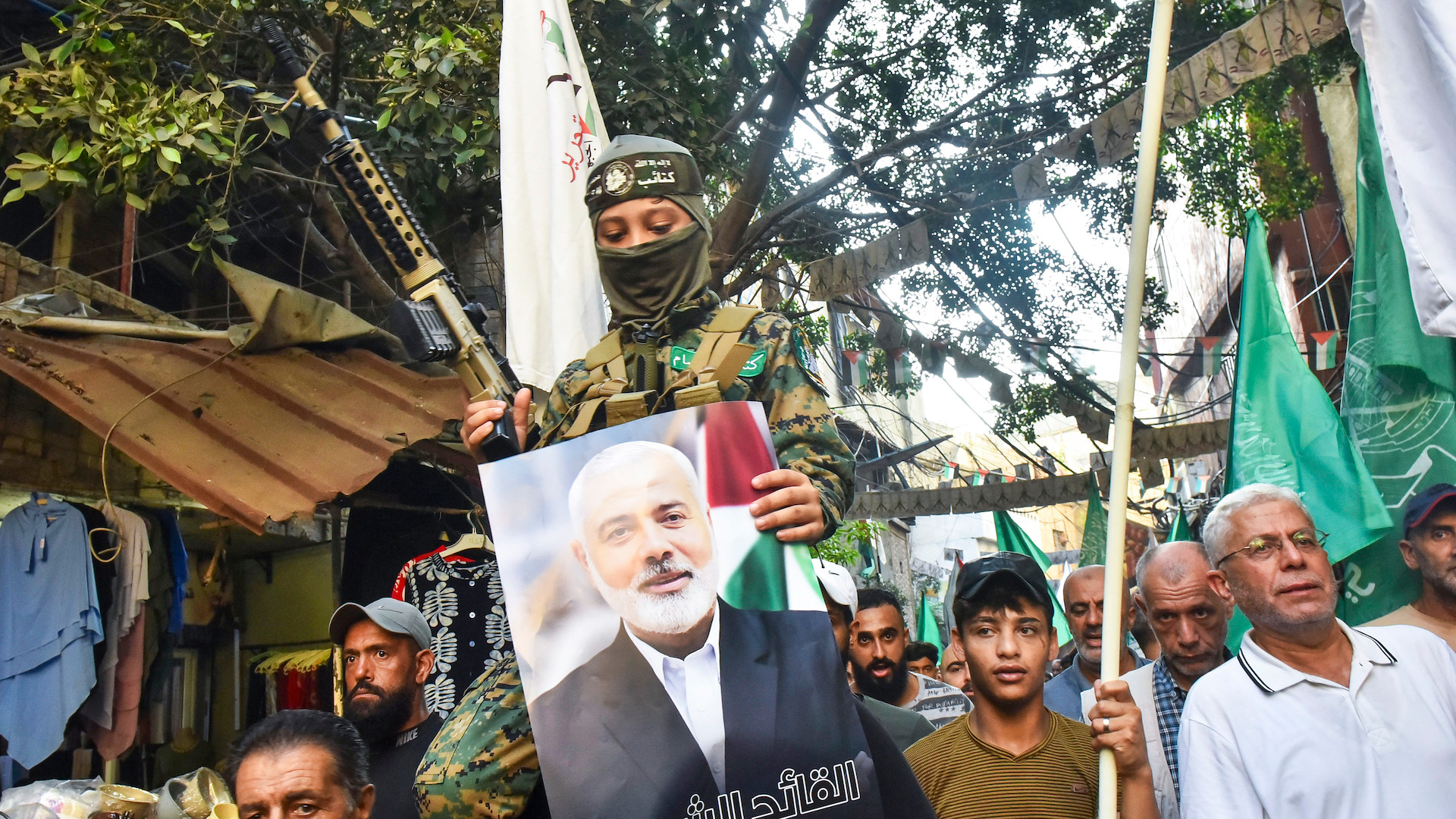Ismail Haniyeh, the political leader of Hamas, was assassinated early on Wednesday morning in Iran, the Palestinian militant group and authorities in Tehran confirmed. Israel is understood to be behind the killing of Haniyeh, the latest in a long line of assassinations of its enemies, and the second in just 24 hours. One big question now is how Hamas — and Iran — will respond, but many details of the killing remain murky, including exactly how Haniyeh was targeted and taken out. We will address some of the glaring possibilities in a moment.
According to Iranian media, Haniyeh — normally based between Qatar and Turkey — was killed at around 2:00 AM. local time on Wednesday. Iran’s Revolutionary Guards confirmed he was staying at a “special residence” for war veterans in the north of the Iranian capital, Tehran.
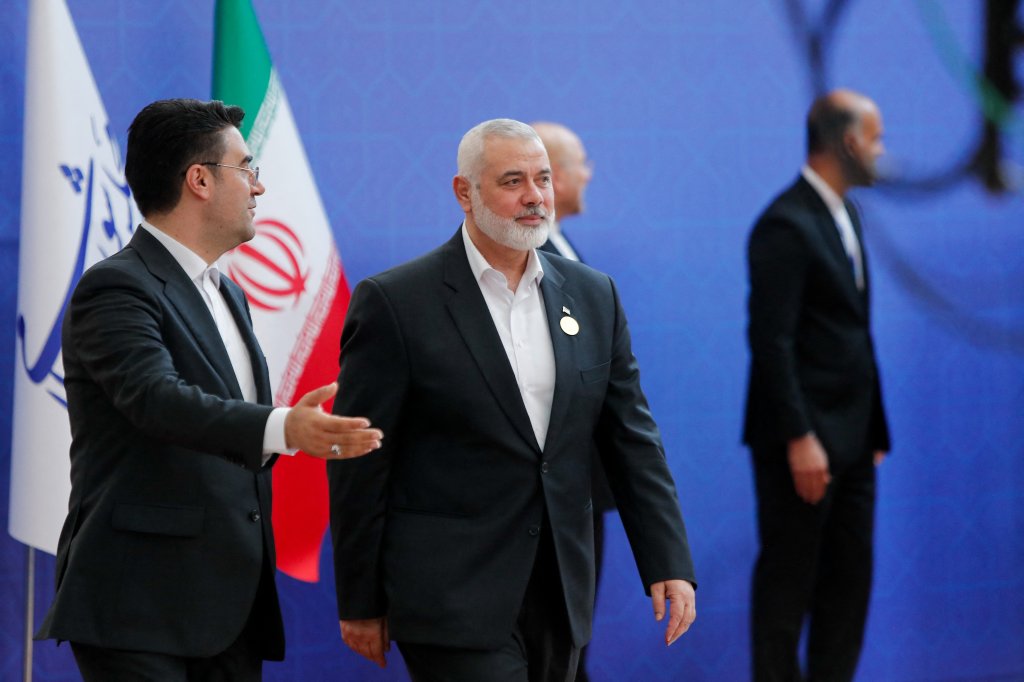
Haniyeh had come to greater prominence since Hamas launched its unprecedented attack on Israel on October 7, which precipitated the war in Gaza that has continued since then. Widely seen as one of the more moderate senior officials within Hamas, Haniyeh had been responsible for international diplomacy for the group.
“In recent days, we delivered crushing blows to all of our enemies, Hezbollah, Hamas, and the Houthis,” Israeli Prime Minister Benjamin Netanyahu said in a nationally televised address today. “In the strike yesterday, we eliminated [Hezbollah Secretary General Hassan] Nasrallah’s deputy, he was responsible for the murderous attack on Majdal Shams and one of the most wanted terrorists in the world. We settled the score and we will settle the score with all those who massacre our citizens.”
Netanyahu notably did not mention Haniyeh directly by name or indirectly by title.
As to the means of Haniyeh’s assassination, the details remain unclear. NourNews, a news outlet affiliated with Iran’s Supreme National Security Council, said that his residence was hit by an “airborne projectile.” The same outlet added that the assassination was “a dangerous gamble to undermine Tehran’s deterrence.”
Meanwhile, Hamas itself has described Haniyeh as being killed in an “airstrike,” a description that could encompass a wide variety of weapons, from locally launched small drones carrying explosives to ordnance launched from Israeli Air Force strike aircraft over great distances.
There are unconfirmed claims suggesting that the assassination may have involved a small quadcopter, which would have had to have been launched a relatively short distance from where Haniyeh was staying. The use of small weaponized drones by Israel for urban operations, including entering a particular building, as seen in the video embedded below, is a recognized capability. It’s also one that would have obvious relevance in the assassination of an individual, like Haniyeh, who has been located within a specific building, even in a specific room.

The use of more traditional kamikaze drones, or even non-line-of-sight (NLOS) anti-armor missiles, for localized operations is also a very real possibility here. Such weapons can strike with extreme precision while keeping the launch site and operator significantly offset from the target area.
Other claims involve the use of a long-range missile or a traditional airstrike. The ability of the Israeli Air Force to carry out long-distance strikes was demonstrated once again earlier this month when oil infrastructure in Yemen was targeted, F-15I and F-16I combat aircraft, as well as F-35I stealth fighters, have regularly launched precision strikes against other targets deep inside Syria and likely Iran, as well. Israel’s F-35Is could potentially penetrate into Iranian airspace, as well, but going all the way to Tehran seems very unlikely.
Standoff munitions, including an increasingly diverse stable of air-launched ballistic missiles that can penetrate deep into Iran and bypass its air defenses, provide a survivable, long-range air-launched option. This capability was put to use in an Israeli Air Force strike on an S-300 SAM site deep inside Iran that was launched in response to Tehran’s large-scale drone and missile attack on Israel. Cruise missiles are another option, including the possibility of using a conventional version of Israel’s shadowy ‘Popeye Turbo,‘ the longest-reaching standoff weapon known to be in Israeli service.
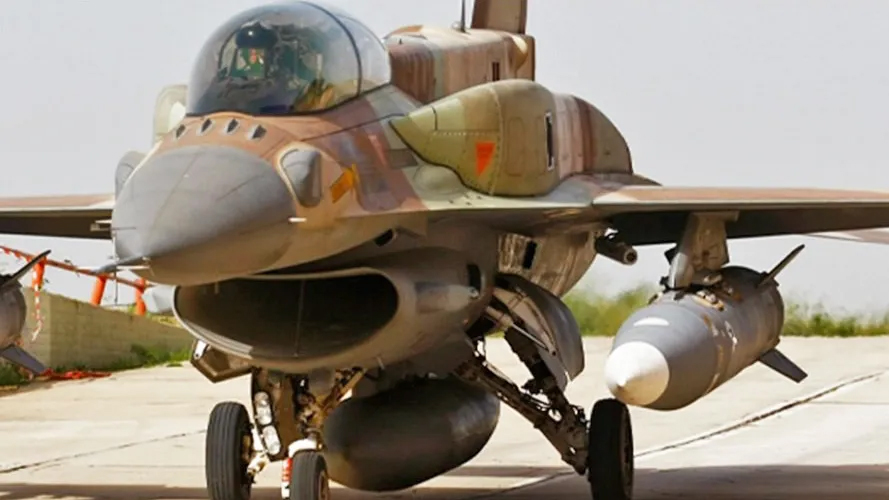
While Israel has gained much experience in launching long-range strikes against its enemies, it has also used exotic options for targeted killings, too, including in Iran. The use of improvised explosive devices (IEDs), drive-by shootings, and other cruder means of assassination are also well established within Israel’s ‘cloak and dagger’ playbook. Israel’s espionage operations in Iran are well established, with targeted assassinations occurring sporadically over the years, as well as major intelligence-gathering operations, some of which are now famous.
There are also clearly a number of capabilities Israel possesses that have not been publicly disclosed. A localized drone or missile strike does seem mostly likely and points to a future where such attacks could be more commonplace. The War Zone previously explored the threats that drones in particular pose as tools for assassinations in detail after an attempt on the life of Venezuelan dictator Nicolas Maduro using an uncrewed aerial system back in 2018.
In a statement after the assassination, Hamas said it would “take the battle to new dimensions and have major repercussions.” The group added that it was “confident of victory” in the Gaza war.
Iran, too, has promised retaliation and has said that the United States bears responsibility due to its support for Israel.
According to local reports, the Israeli Minister of Defense Yoav Gallant said that Israel did not want to escalate the conflict in the Middle East but was prepared to handle all scenarios.
There are concerns now that the chances of a ceasefire in the Gaza war will be reduced. Ceasefire negotiations have been mediated by Qatar, the United States, and Egypt.
“Political assassinations and continued targeting of civilians in Gaza while talks continue to lead us to ask: How can mediation succeed when one party assassinates the negotiator on the other side?” Qatari Prime Minister Sheikh Mohammed bin Abdulrahman Al Thani wrote on X.
As Israeli Prime Minister Netanyahu noted in his address, the killing of Haniyeh is not the first Israeli political assassination in the last 24 hours.
Previously, Israel claimed to have killed Fuad Shukr, Hezbollah’s top military commander, in an airstrike in Lebanon. The Lebanese militant group has since confirmed the death of Shukr.
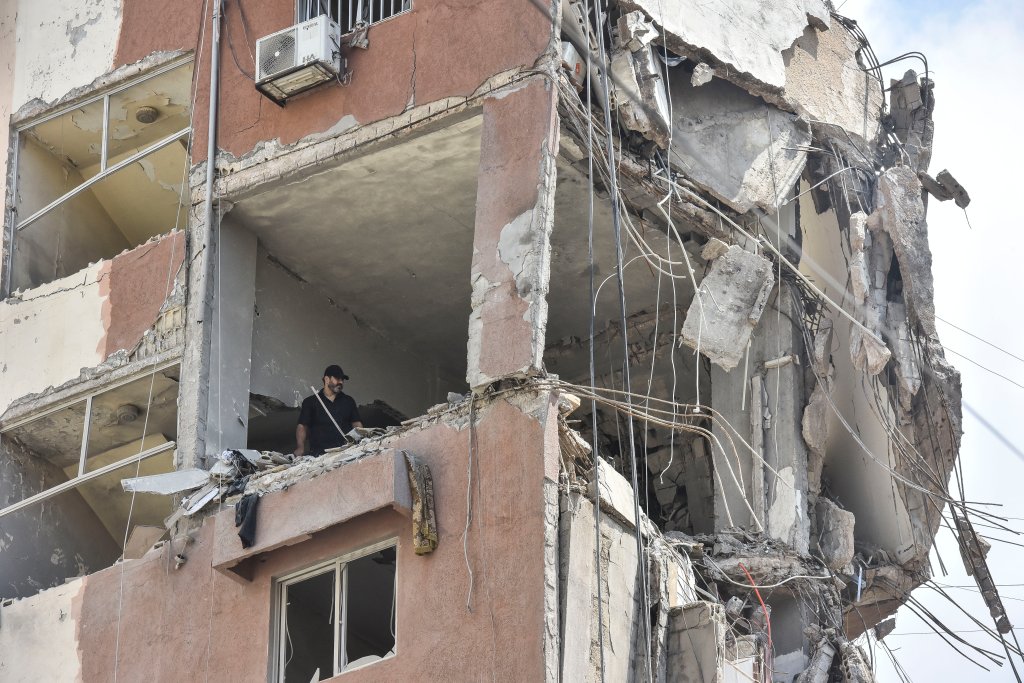
The strike on Beirut came shortly before the assassination of Hamas leader Ismail Haniyeh in the early hours of Wednesday in Iran, in a development that has further fanned fears of wider regional escalation. Hezbollah is an ally of Hamas.
Hezbollah said today that Shukr had been in a building in the southern suburbs of Beirut when it was targeted by an Israeli strike. The group didn’t confirm his fate but said that “a number of citizens” had been killed and others wounded.
Israel had blamed Shukr for a deadly rocket attack in the Israeli-occupied Golan Heights on Saturday.
Israeli Minister of Defense Gallant said Shukr “has the blood of many Israelis on his hands. Tonight, we have shown that the blood of our people has a price and that there is no place out of reach for our forces to this end.”
While Hezbollah denied involvement in the Golan attack, the events have further heightened the risk of a large-scale war between Israel and Hezbollah.
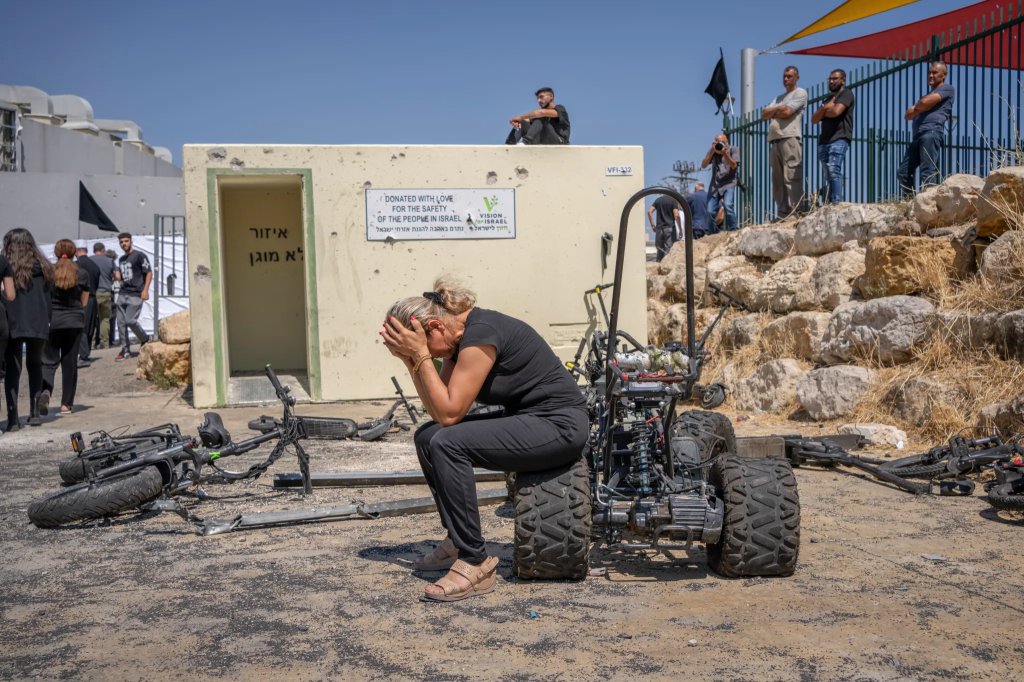
Hezbollah parliamentarian Ali Ammar today condemned Israel for the killing of both Shukr and Haniyeh. “This enemy [Israel] demands war and we are up for it, God willing, we are up for it,” Ammar said.
In Beirut, Lebanese lawmakers also expressed fears about a large-scale response from Hezbollah, which could make use of its extensive arsenal of missiles and drones.
“Lebanon does not want war,” Lebanon’s Information Minister Ziad Makary said today, but added that the government was concerned the situation could “spiral.”
Claims have also been circulating on social media that Brig. Gen. Amir Ali Hajizadeh, head of Islamic Revolutionary Guard Corps’s Aerospace Forces (IRGC-AF), was killed today in the Syrian capital Damascus, but this remains entirely unconfirmed.
The deaths of Haniyeh and Shukr threaten to further deepen the conflict in the Middle East, especially as regards to Iran’s involvement. The killing of Haniyeh, specifically, on Iranian soil will inevitably increase the pressure on the regime in Tehran to respond against Israel.
Such a response may take the form of one or more campaigns launched by Iran’s proxies in the Middle East, including Hezbollah, the Houthis in Yemen, and various armed groups in Iraq.
Iran President Masoud Pezeshkian today vowed to defend his country’s “territorial integrity, dignity, honor, and pride” and will ensure that “the terrorist occupiers regret their cowardly act.”
Iran’s Supreme Leader Ali Khamenei also called for “harsh punishment” on Israel and that it was Tehran’s duty to avenge the Hamas leader’s death in the Iranian capital.
According to Reuters, Iran’s top security officials have already met to discuss a response to the death of Haniyeh. Tehran already unleashed a major missile and drone strike from its territory at targets in Israel in April, although the raid was largely neutralized by Israeli and allied air defenses.
As we await more details about the recent assassination operations, it’s abundantly clear that tensions in the region have been raised further. Already, the conflict in Lebanon had been escalating, while the fighting in Gaza still rages. Now, Iran’s threats of revenge against Israel after the killing of Ismail Haniyeh only compound these issues.
UPDATE: 3:40 PM EST —
Analysis of past satellite imagery indicates a picture circulating online does indeed show the building that Haniyeh was staying in when he was killed, according to The New York Times‘ Christiaan Triebert. The structure in question is next to the Sadabad Palace, a historical landmark that is also adjacent to the current official residence of the president of Iran.
Iran’s Supreme Leader Ali Khamenei has already approved an order to strike Israel in retaliation for the Haniyeh assassination, The New York Times has also reported, citing three anonymous Iranian officials, including two IRGC officers.
The U.S. State Department has also raised its travel advisory for Lebanon from Level 3, “reconsider travel,” to Level 4, “do not travel.”
UPDATE: 6:45 PM EST —
A copy of a letter Israeli Foreign Minister Israel Katz has reportedly sent to his counterparts in several countries regarding the strike that killed Fuad Shukr has emerged.
“In yesterday’s attack, Israel sent a clear message: we will harm with great force whoever harms us,” the missive reads. “The State of Israel will continue to defend itself and its citizens.”
“Israel is not interested in an all-out war, but the only way to prevent it is the immediate implementation of [U.N. Security Council] Resolution 1701,” it adds. Adopted in 2006, UNSC Resolution 1701 calls for a “full cessation of hostilities” between Hezbollah and Israel and “the establishment of a demilitarized zone” in southern Lebanon, and has never been implemented.
Iranian media is also reporting that an IRGC advisor to Hezbollah, Milad Bedi, was also killed in the strike targeting Shukr.
Iran may be considering a mass missile and drone strike on Israel similar to the one it launched in April, focusing on targets in Tel Aviv and Haifa, per The New York Times. Coordination with proxies across the Middle East could be part of the retaliatory plan, as well.
Israel is already reportedly bracing for a multitude of possible threats and is said to have threatened further escalation in response.
Contact the author: thomas@thewarzone.com
